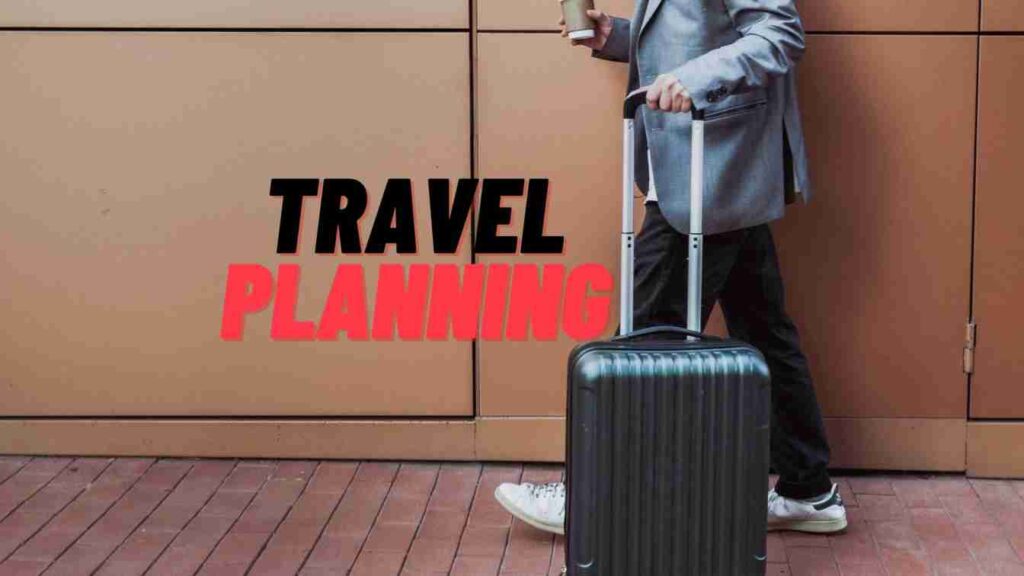Thriving on a Budget: Travel Planning for Financial Success

Are you longing for adventure but worried about the impact on your bank account? Fret not; with the right approach, you can thrive on a budget while traveling. Traveling doesn’t have to break the bank. Strategic planning and a little creativity can lead to an enriching experience without the financial burden.
1. Destination Research and Off-Peak Travel
The first step to thriving on a budget is destination research. Not all places have the same cost of living, and your currency may stretch further in some regions. Choosing destinations where your money goes a long way is key. For instance, Southeast Asian countries like Thailand, Vietnam, and Cambodia are known for being budget-friendly travel destinations. Research visa costs, daily expenses, and available discounts before you make your choice.
Additionally, consider traveling during off-peak seasons. Peak seasons usually come with higher prices for accommodations, flights, and attractions. Off-peak travel not only saves you money but also means fewer crowds, allowing for a more peaceful and authentic experience.
2. Budgeting and Prioritizing Expenses
Planning your dream trip requires careful consideration of all costs to ensure you have enough money for the whole journey. One way to control your spending is by making a detailed budget that covers key expenses like where you’ll stay, how you’ll get around, what you’ll eat, activities you’ll do, and unexpected costs that might pop up.
Also, think about checking out a credit union in Detroit to manage your money better. Credit unions often offer lower fees and interest rates, plus they provide financial advice and services that can help you handle your budget even better. Don’t forget to tailor your budget to fit what you like and value most, whether it’s fancy dining or exciting adventures.
3. Accommodation Alternatives
Accommodations can be a significant expense while traveling, but there are various ways to save on this front. Consider alternatives to traditional hotels, such as hostels, guesthouses, or vacation rentals. These options often provide a more authentic and budget-friendly experience.
Many hotels also offer loyalty programs or discounts, so if you have a preferred hotel chain, sign up for their loyalty program to access exclusive rates and perks.
4. Transportation Strategies
Transportation is another significant cost when traveling. To save on transportation expenses, follow these strategies:
- Use fare comparison websites and apps to find the best deals on flights and train tickets.
- Book your flights well in advance to secure lower fares.
- Consider budget airlines, but be mindful of their baggage policies and additional fees.
- Utilize public transportation within your destination to save on taxi fares or car rentals.
5. Eating Smart and Local
Exploring local cuisine is a big part of travel, and you can do this without emptying your wallet. Opt for local markets, street food, and affordable eateries to experience the flavors of the region without overspending. You’ll often find that these local options offer some of the most delicious and authentic dishes.
Additionally, seek out recommendations from locals or other travelers for budget-friendly dining options. Many travelers have discovered hidden gems that serve amazing food at a fraction of the cost of touristy restaurants.
6. Entertainment and Activities
Research free or low-cost activities in your destination. Many cities offer a variety of cultural and recreational experiences that don’t come with a hefty price tag. Some ideas include:
- Hiking in nearby natural parks or trails.
- Visiting museums and cultural sites on free or discounted entry days.
- Attending local festivals or events.
By planning your activities around these options, you can have a fulfilling travel experience while keeping your budget in check.
7. Money-Saving Technology
In today’s digital age, some countless apps and tools can help you save money while traveling. Consider using the following:
- Travel deal apps: These apps can help you find discounts and deals on accommodations, flights, and activities.
- Currency exchange rate apps: Stay updated on currency exchange rates to get the most out of your money.
- Navigation apps: Use navigation apps to find the most efficient and cost-effective routes when using public transportation or walking.
8. Travel Insurance and Health Coverage
Invest in travel insurance to protect your investment and avoid unexpected expenses due to unforeseen circumstances. Travel insurance can cover canceled flights, lost luggage, medical emergencies, and other unexpected costs that might otherwise derail your budget.
Additionally, make sure you have health coverage that’s suitable for your travel destination. In some countries, it’s essential to have adequate health insurance, so research the requirements and choose a plan that provides the necessary coverage.
9. Pack Wisely and Avoid Overpacking
Packing wisely can help you save on baggage fees and make your journey more convenient. Stick to the essentials and avoid overpacking. By packing light, you can use smaller, more affordable luggage or even opt for carry-on-only travel. This not only saves you money but also makes it easier to move around and navigate airports and transportation hubs.
10. Flexibility and Adaptability
Last but not least, staying flexible with your travel plans can help you thrive on a budget. Be open to last-minute deals, discounts, and opportunities that arise during your journey. Sometimes, spontaneous choices can lead to unique and cost-effective experiences that you hadn’t planned for.
Adapt your itinerary as needed to make the most of your budget. If you find a great deal on a guided tour or an unexpected local event, adjust your plans to take advantage of the opportunity. Being adaptable can lead to unexpected and memorable experiences.